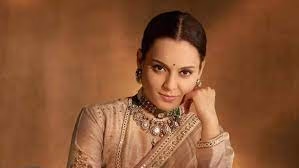Renowned actor Faisal Qureshi recently made headlines during his appearance on a private TV program while promoting his new horror-thriller film Deemak, released on Eid-ul-Adha. The actor, known for his versatile roles on television and film, found himself in the middle of a debate regarding the storytelling patterns of Pakistani dramas.
A Tough Question Sparks a Spirited Reaction
During a Q&A session with the audience, a young woman posed a question that many viewers often raise. She asked why Pakistani dramas often revolve around repetitive storylines, particularly those centered on mother-in-law and daughter-in-law conflicts, and how Deemak would be any different from the same themes repeated on TV.
Her query seemed to strike a nerve with Faisal Qureshi, who responded firmly and passionately, challenging the notion that the industry lacks diversity in its content.
Faisal Qureshi Pushes Back: Which Dramas Are the Same?
Faisal responded by asking, Which plays are similar? Tell me the names.He went on to defend the diversity of recent Pakistani drama productions, listing several examples that break away from stereotypical domestic narratives.
He highlighted popular and critically acclaimed dramas including:
- Khai – a suspenseful drama exploring psychological trauma
- Ishq Murshid – a romantic thriller with a political twist
- Kabuli Pulao – a cross-cultural love story
- Bahrupiya – a drama delving into identity and deception
- Dunyapur, Farar, Sarab, and Raja Rani – all of which he claimed had unique plots and characters that move away from cliché storylines.
Faisal emphasized that the landscape of Pakistani television has evolved, and that many production houses and writers are working hard to bring new, meaningful narratives to the screen.
Social Media Reacts: Support and Criticism Alike
As clips of the moment surfaced on social media, audiences were split in their response to Faisal’s reaction. Some viewers praised him for defending the creative efforts of Pakistani storytellers, noting that he had a valid point — dramas in recent years have diversified significantly.
Others, however, criticized his tone, arguing that the question was valid and asked respectfully. They felt that Faisal could have addressed the query without appearing defensive or dismissive, and should have acknowledged that a portion of the drama industry still relies heavily on domestic conflict plots to draw viewership.
The Success of Deemak Breaks the Mold
Amid the online chatter, one point remains clear — Faisal Qureshi’s film Deemak has resonated strongly with audiences. Released on Eid-ul-Adha, the film has been praised for its fresh approach to horror, a genre rarely explored in mainstream Pakistani cinema.
The storyline, performances, and production quality were all well-received, with viewers calling it a refreshing break from traditional romantic or family-centric films. Many appreciated the film’s bold theme and suspense-driven narrative, which stood out amid the typical Eid releases.
A Larger Debate on Pakistani Entertainment
This exchange between Faisal Qureshi and the audience member reflects a larger conversation about content evolution in the Pakistani entertainment industry. While the television sector has been historically criticized for over-relying on domestic melodrama, especially the Saas-Bahu trope, recent years have indeed seen a shift.
With streaming platforms, younger writers, and global exposure, there has been a conscious push toward experimental and socially relevant stories. However, viewer perception still lingers — possibly due to high-profile dramas that stick to conventional formulas and dominate ratings.
Faisal Qureshi: A Veteran With Passion
Faisal Qureshi’s impassioned response may stem from his deep involvement and commitment to the television industry. With decades of experience, he has seen the evolution of Pakistani drama firsthand and continues to play an active role in pushing boundaries, both on-screen and off-screen.
As debates around creative direction continue, one thing is certain: audiences are paying attention, and creators like Faisal Qureshi are ready to stand up for the industry’s progress. Whether one agrees with his tone or not, his core message reflects a growing ambition in the Pakistani media space — to tell bold, diverse, and impactful stories that resonate at home and beyond.



